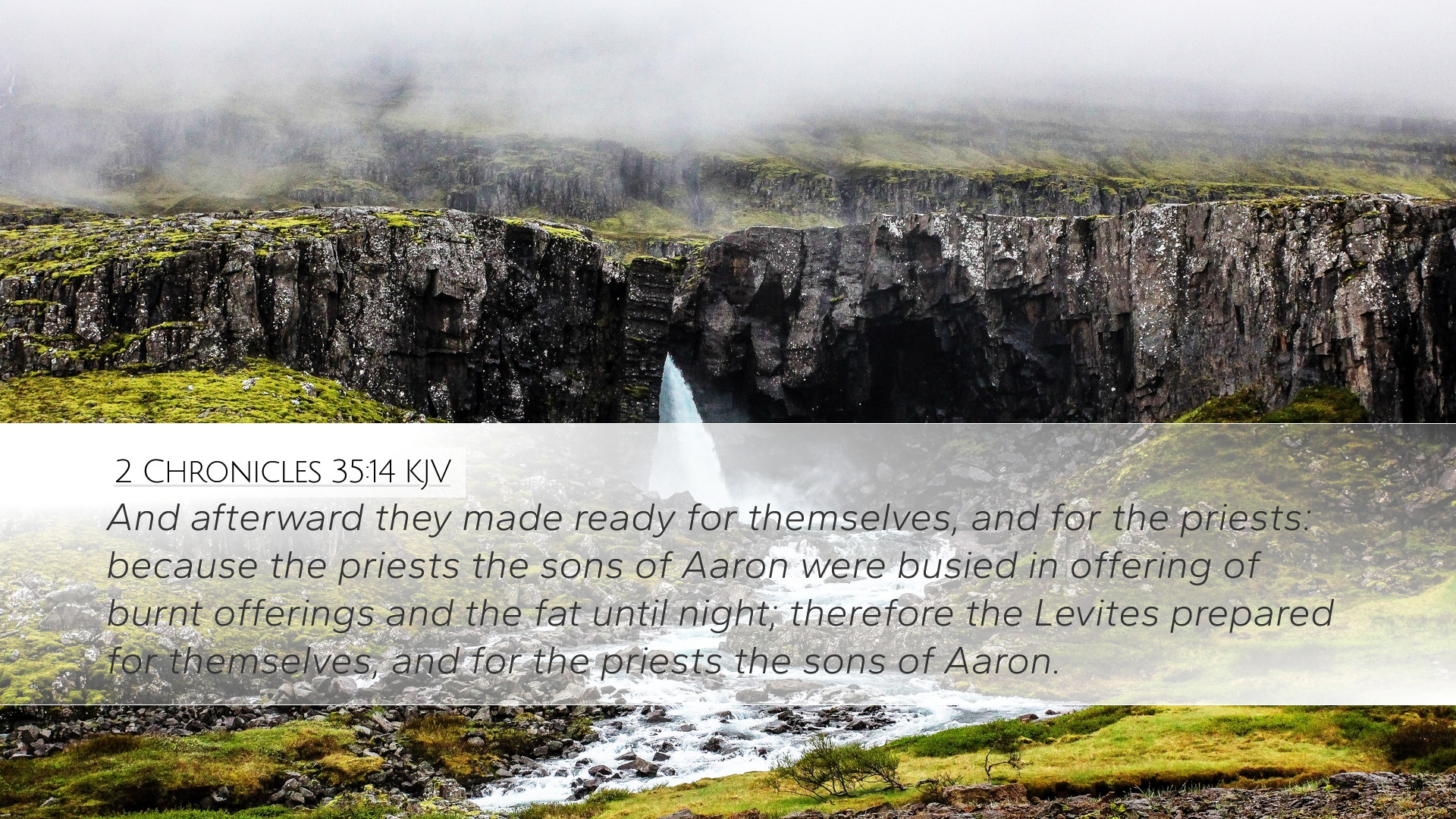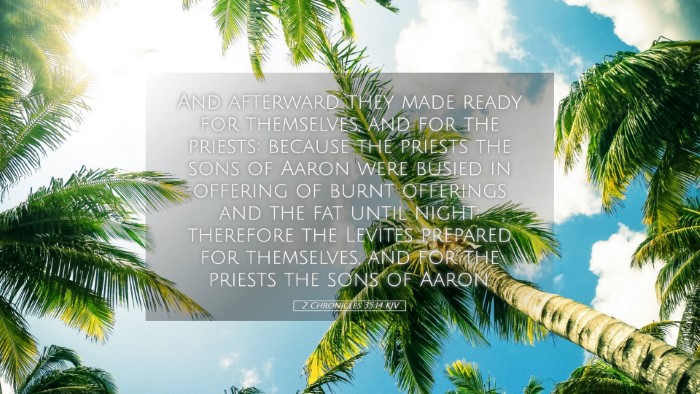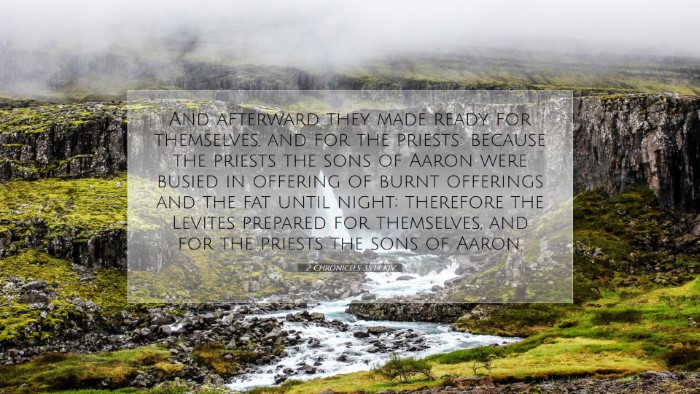Commentary on 2 Chronicles 35:14
Verse Context: 2 Chronicles 35:14 states: "But afterward they prepared for themselves and for the priests, because the priests the sons of Aaron were busied in offering of burnt offerings and the fat until night; therefore the Levites prepared for themselves, and for the priests the sons of Aaron."
Introduction
This verse finds itself within the narrative of King Josiah's reform and the celebration of the Passover. It highlights the roles of the priests and Levites in worship, particularly their preparation and dedication, which is crucial for an understanding of Old Testament sacrificial systems and worship practices. It also stresses the communal aspect of worship where both the priests and Levites work collaboratively for the spiritual well-being of the people.
Insights from Matthew Henry
Matthew Henry emphasizes the importance of preparation in the worship of God. He points out that the priests, being busy with their sacred duties, needed assistance, which the Levites readily provided. This exemplifies cooperation in ministry and the idea that all roles within the worship service are vital for a proper approach to God.
- Division of Responsibilities: Henry suggests that the priests were focused on their sacred responsibilities, which required significant time and effort. Their engagement in continual offerings underscores the gravity of their call and the spiritual weight carried by those in ministry.
- Levites' Role: The Levites took up the responsibility of preparing offerings for the priests, indicating a division of labor that facilitated worship's smooth operation. This communal service is a model for contemporary church practice where different roles support the shared goal of glorifying God.
Albert Barnes' Commentary
Albert Barnes provides a more pastoral view, reinforcing the sacred nature of the priests' work and the importance of their preparations. He notes that the act of preparation is not merely practical but an integral part of the worship experience.
- The Importance of Preparation: Barnes asserts that time spent in preparation reflects the seriousness that both leaders and congregants should hold towards worship. He remarks on the dedication shown by both priests and Levites as they prepared offerings, stating that their efforts symbolize a heart committed to God.
- Spiritual Readiness: The focus on the priests being engaged until night suggests that worship is not bound by time but should be approached with a sense of duty and joy. Barnes encourages modern-day followers to embrace similar diligence in their personal and communal worship experiences.
Adam Clarke's Interpretation
Adam Clarke’s commentary places special emphasis on the roles within the Levitical priesthood and the inherent significance of their collective actions. He focuses on both the physical and spiritual implications of the verses.
- Unity in Worship: Clarke highlights how the efforts of both the priests and Levites demonstrate unity in task and purpose. He notes that this collaboration not only serves practical needs but also fosters a spirit of community among God’s people.
- Ongoing Worship: Clarke also mentions the significance of the term "until night," which conveys the idea that worship is continuous. This concept is highly applicable to modern worship as it emphasizes the need for ongoing reverence and responsibility in all aspects of life.
Theological Implications
This verse and its insights impart significant theological teachings valuable for pastors, students, theologians, and scholars. The collaboration between the priests and Levites showcases the biblical principle of unity within diversity. It attests to the belief that every member of the body of Christ has a role to play in worship, reflecting the multifaceted nature of ministry.
Community and Ministry
The shared responsibilities of the priests and Levites encourage modern church congregations to work together in ministry. Each member, whether leading worship, teaching, or preparing, contributes uniquely to the spiritual vitality of the church.
Preparation as Worship
Preparation itself becomes an act of worship. By taking time to ready themselves spiritually and physically for the task at hand, church leaders set an example for the congregation, emphasizing that how we prepare to meet with God is reflective of our reverence toward Him.
Conclusion
2 Chronicles 35:14 teaches profound lessons on preparation, teamwork, and the sacredness of worship. The insights offered by Matthew Henry, Albert Barnes, and Adam Clarke converge to create a rich tapestry of understanding that reveals the heart of service towards God. For pastors, students, theologians, and Bible scholars, these truths remain timeless, calling us to examine our roles within the body of Christ and the importance of our collective worship as a community devoted to the glory of God.


